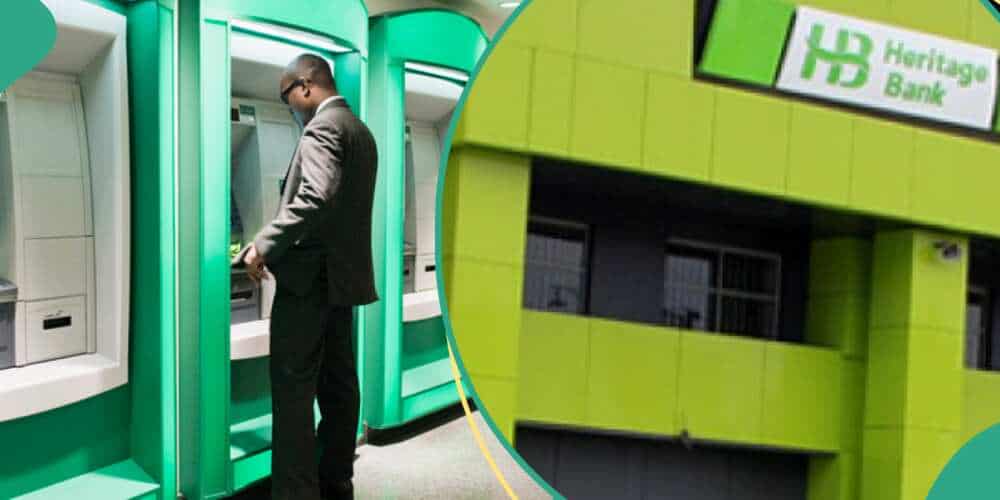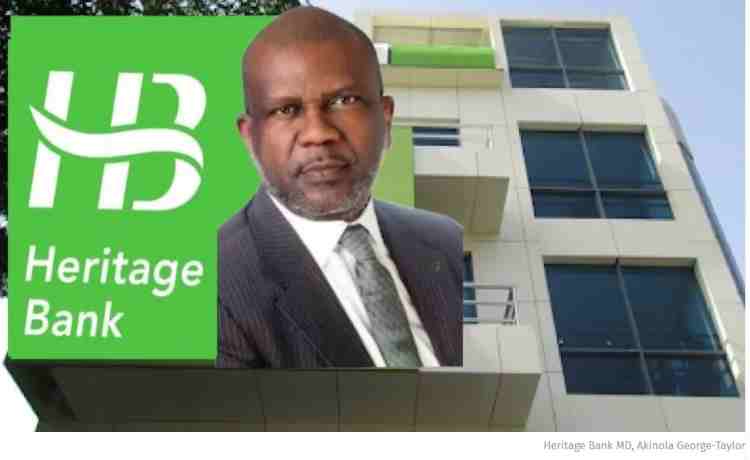News
Bad loans: The rise and fall of Heritage Bank, Nigerian bank built by Saraki

- Heritage Bank was recently liquidated by the Central Bank of Nigeria, and the NDIC took over control of the bank, refunding customers of the firm
- There are indications that the bank’s situation may have worsened due to questionable purchase agreements, bad loans, and other issues
- The CBN under Olusegun Obasanjo had earlier dissolved the bank in 2006 because it failed to recapitalise the bank to the required N25 billion
The Nigeria Deposit Insurance Corporation (NDIC) was recently designated by the CBN as the liquidator of Heritage Bank and subsequently assumed control of the defunct bank.
It was gathered that the CBN initially interacted with the bank and suggested a number of supervisory actions meant to stop the downturn.
However, the apex bank stated that Heritage Bank would not improve and that the license revocation was the next logical move.
In a recent report, Premium Times said the bank’s situation may have worsened due to bad loans, dubious acquisition agreements, and other corporate governance issues that ultimately resulted in its collapse.
Jim Obazee’s investigation
According to information found in the “Final Comprehensive Report” prepared by Jim Obazee, the special investigator appointed by President Bola Tinubu to examine the apex bank’s operations under former CBN governor Godwin Emefiele, the failure of Heritage Bank may have been related to the bank’s involvement in the purchase of Keystone Bank.
According to the report released in December 2023, the managing director of AMCON sent N20 billion to Heritage Bank in 2017.
After that, the bank’s shares were used as collateral for a N25 billion loan that Heritage Bank gave to the ISA FUNTUA/EMEFIELE GROUP promoters in order to buy Keystone Bank.
The promoters gave Heritage Bank the N20 billion back as placement after securing Keystone Bank, enabling Heritage Bank to reimburse AMCON from the created cash flow.
But when the loan came due and the ISA Funtua/Emefiele group failed to repay, the MD of Heritage Bank, under extreme liquidity constraints, threatened to seize Keystone Bank using the pledged shares as collateral for repayment.
Several important executives resigned due to the constant pressure, including the MD and the deputy managing director, who went on to become the acting managing director.
Rise and fall of Heritage Bank
Heritage Bank, which is currently in financial difficulties, originated from Societe Generale Bank of Nigeria Limited (SGBN), established in the 1970s by Olusola Saraki, a Second Republic senator and the father of Bukola Saraki, a former president of the Nigerian Senate.
Under the previous president, Olusegun Obasanjo, Societe Generale was required to have N25 billion in capital, but by 2006, the CBN liquidated the bank since it had not paid this amount.
The CBN, led by Charles Soludo, was in charge of enforcing the increased capital requirement for banks at the time.
After the bank filed an appeal against the apex bank’s judgment, the Abuja Federal High Court ordered the apex bank to restore the operational permission in April 2008, stating that the bank had satisfied the necessary financial standards to resume operations.
Thereafter, SGBN changed its name to Heritage Banking Company Limited and started operations in 2013.
Heritage Bank effectively purchased 100% of Enterprise Bank Limited’s shares in 2015 for a total estimated value of N56.1 billion.
AMCON reported at the time that HBCL Investment Services Limited (HISL) was the top bidder out of several domestic and foreign parties that expressed interest in buying the bank.
The bank has since had unstable times despite vain attempts at repositioning it.
When Heritage Bank failed to pay N100,270,910 in unpaid taxes to the state treasury, the Akwa Ibom government threatened to dispose of its property in 2023.
The NDIC, led by Bello Hassan, the managing director/chief executive, pledged to use all available means to retrieve the more than N700 billion in loans and advances that the bank was due upon the cancellation of its license.
Concerns have also been raised about the bank’s non-performing loans, which are reportedly among the worst in the Nigerian banking sector.
Experts also raised the disclosure of losses in its 2018 operation and its reliance on the CBN’s short-term borrowing window in the face of liquidity challenges.
The sale of the Heritage Bank properties followed the revocation of the bank’s license by the CBN and the NDIC’s task to liquidate the bank.


